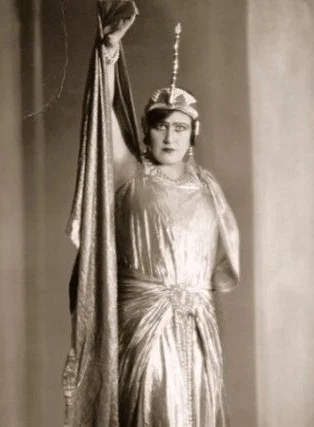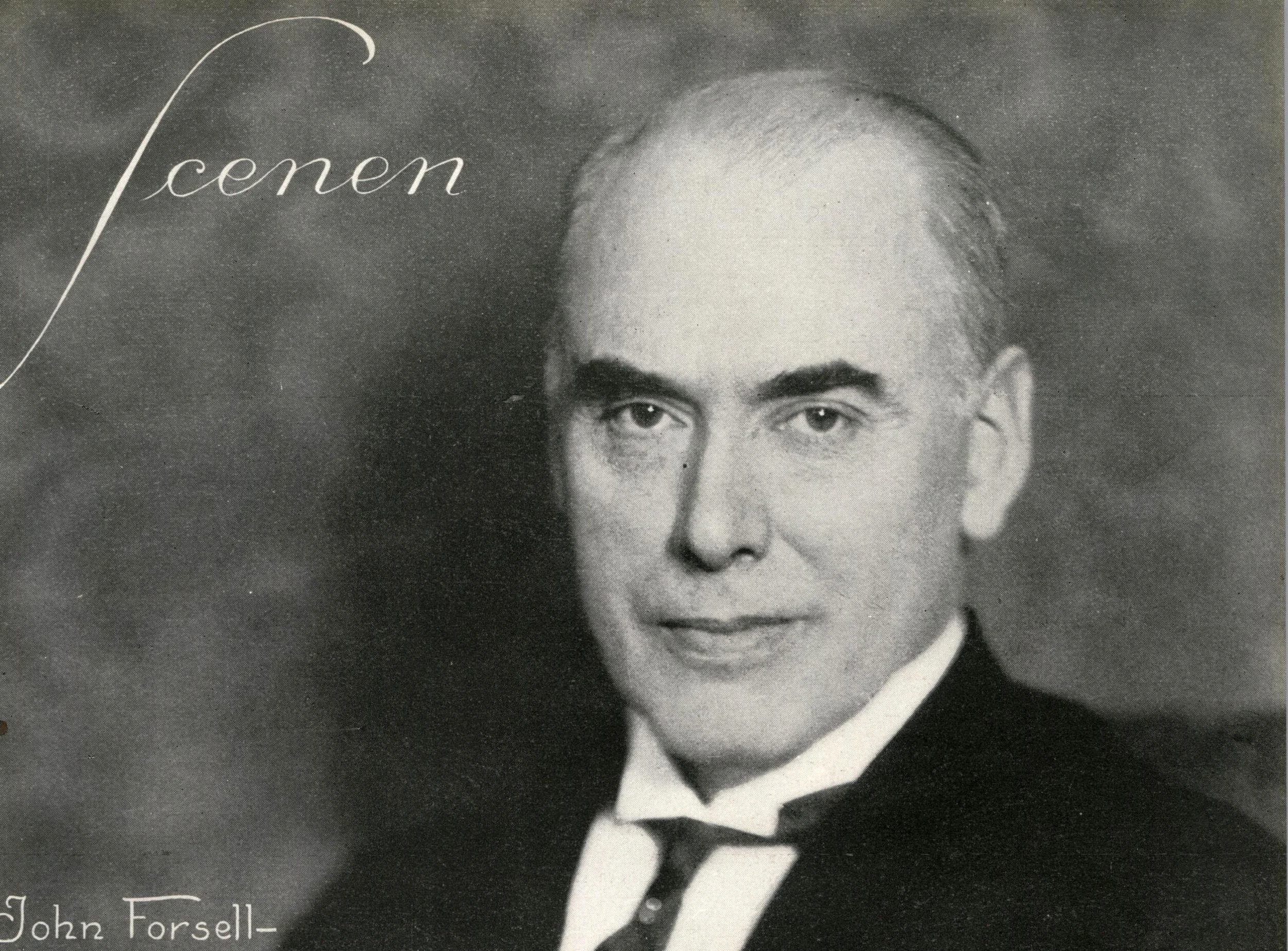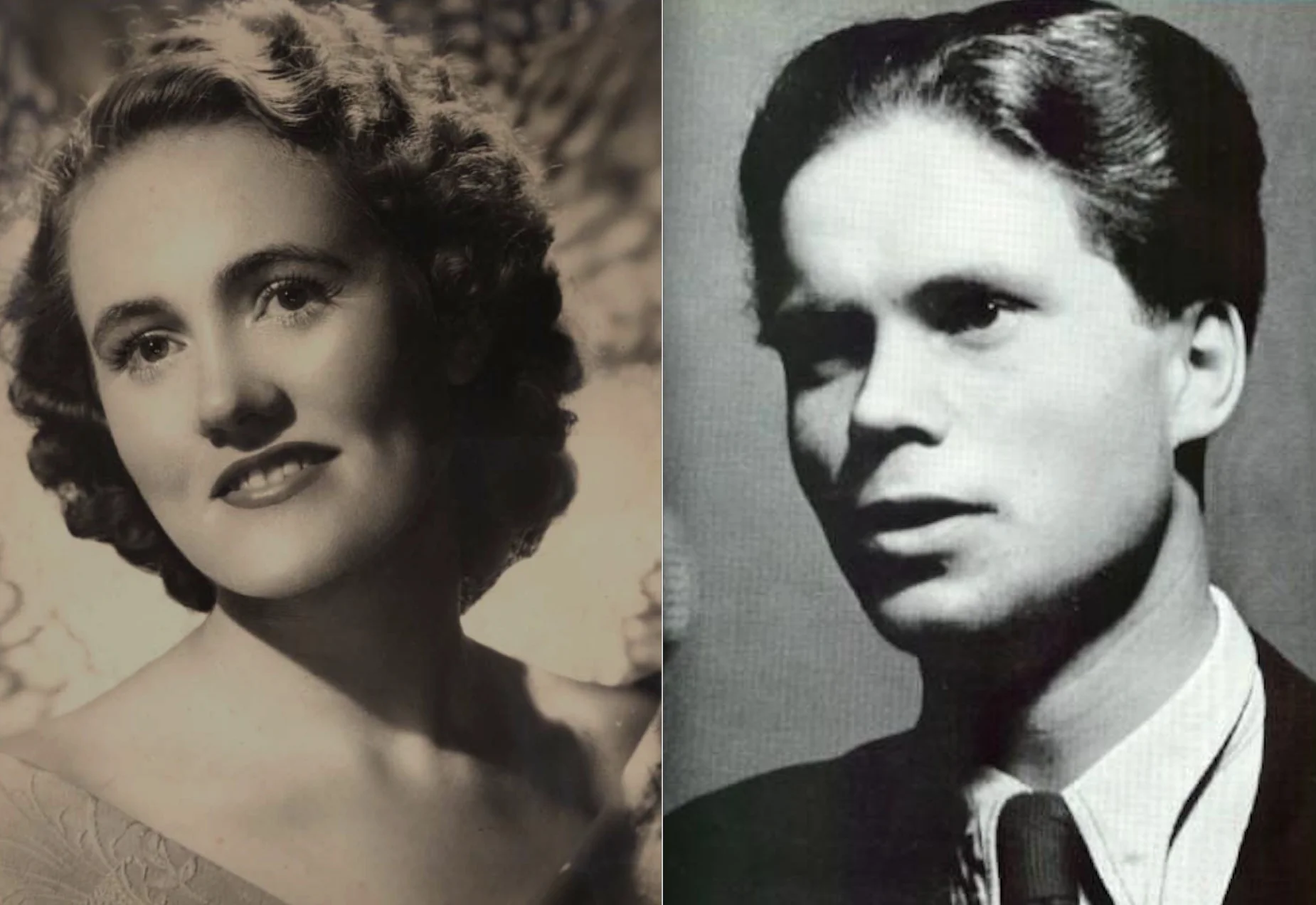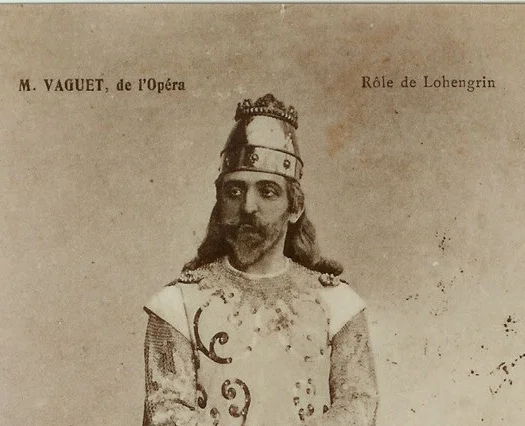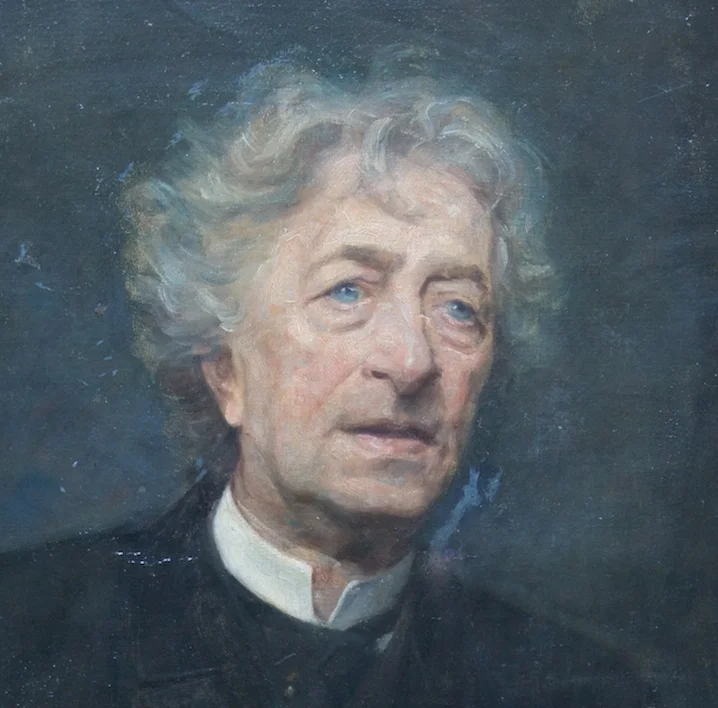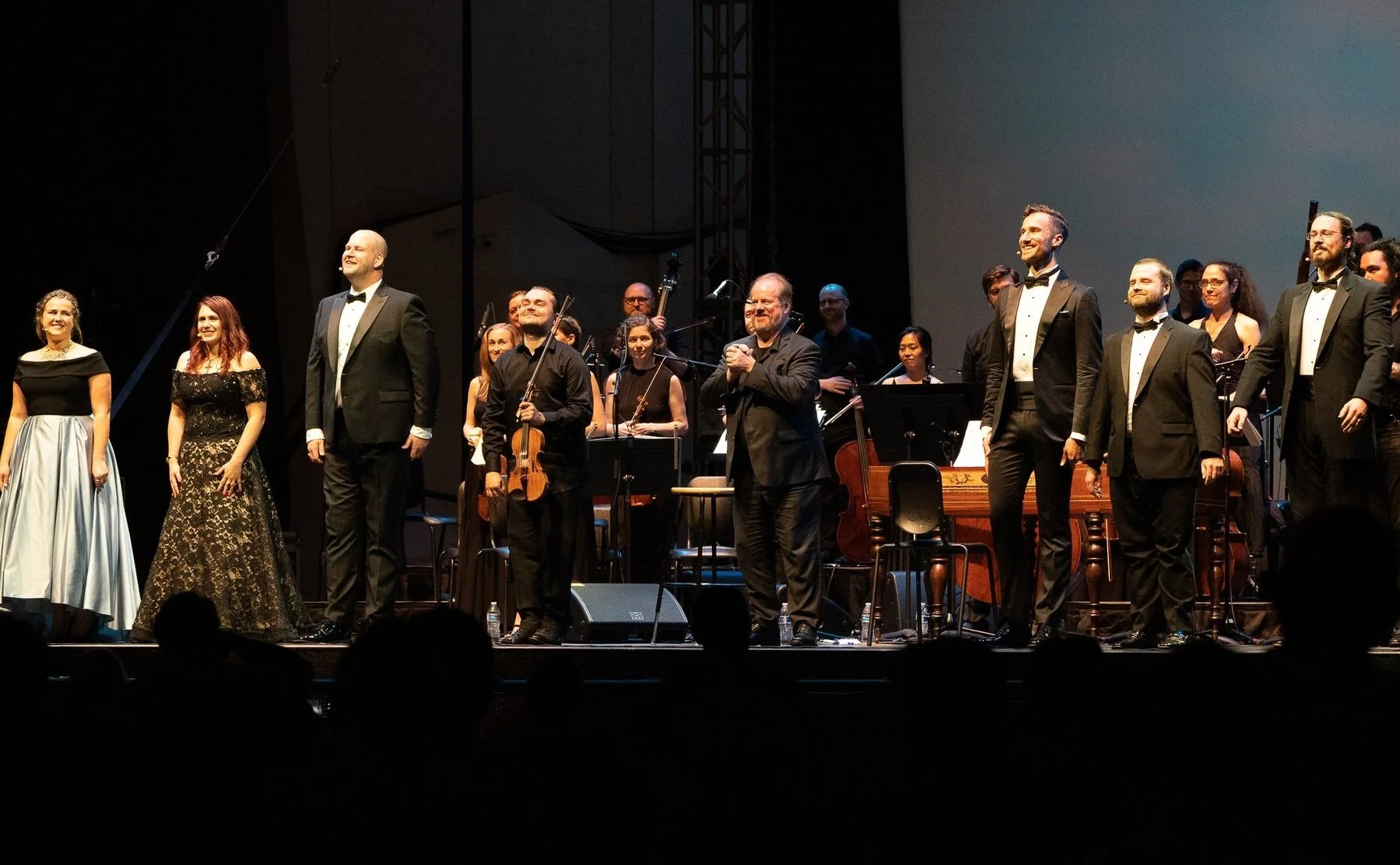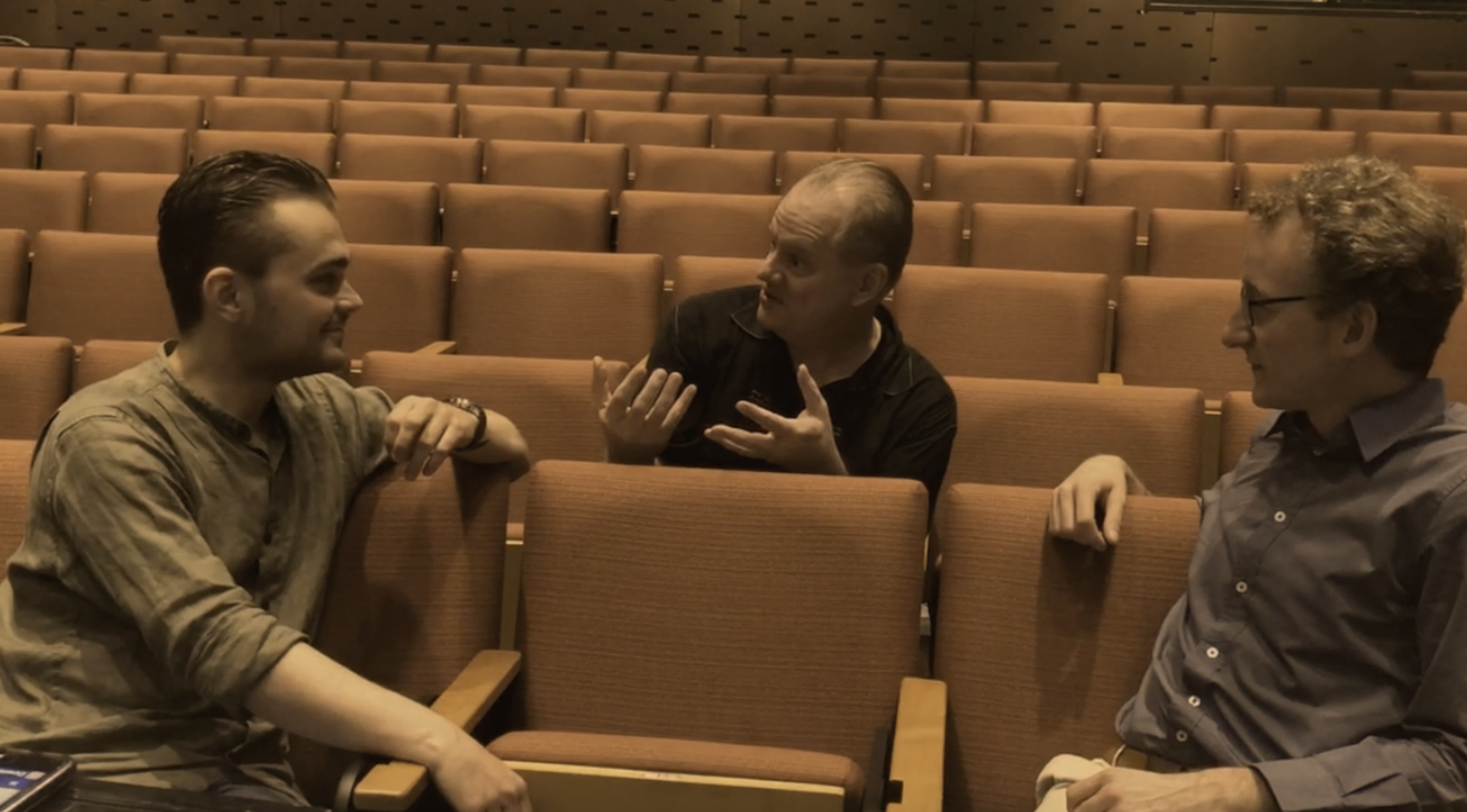Indecision
A young man whose voice sounds promising for opera and reaches easily up to A-flat or A eventually faces a choice. Will he aim to conquer the next few risky semitones (and the necessary stamina/comfort/maneuverability in the previous few), so as to bask in the glory and relatively high fees of the tenor? Or will he firm up the low range and cultivate the weight and heft around upper D, Eb, E and F that make them effective as climactic notes in baritone music?
That's over-simplified, but the question is a real one for many, whether the choice presents itself as French-style light baritone vs. "Mozart tenor" or as Iago/Kurwenal vs. Otello/Tristan. There is not necessarily one “right” choice for each individual, and many of the great tenors and baritones in history have spent time in the other camp. This week's record is by someone who chose young, changed soon, and then went back to Plan A - with success in each phase.
Mieli as Figaro
Oreste Mieli, born in 1870, made a successful Roman debut at age 19 as Verdi's Conte di Luna. At 26, with Rigoletto, Lucia, La favorita, I puritani, Linda, Barbiere, Faust, Pagliacci (Silvio), Cavalleria and Forza (both Carlo and Melitone) under his belt, he turned on a dime and spent the next decade busy throughout Italy as Alfredo, Andrea Chenier, Fernando, the Duke, Rodolfo, José, Loris, Milio, Fritz, Maurizio, Turiddu, and Canio. In 1907, again with scarcely a pause in his calendar, he turned back to the roles of his early seasons, adding Barnaba, Renato, Tonio, Carlo V, Iago, and Scarpia among others. I have not traced any operatic appearances past 1913, but it seems he may have joined the lively Italian operetta circuit around then, because in 1915 he returned to the studios to record excerpts from Planquette's Cloches de Corneville and Ganne's Saltimbanques.
Mieli occasionally held the stage with "stars" but never became one. In both vocal categories, his career centered on lesser cities, lesser theaters in the big cities, and budget-priced touring troupes abroad. He also logged in for budget-priced records, becoming one of the first great studio workhorses already in 1901 for the Zonophone company. He made at least 280 individual recordings, and one has to listen to them in context: occasionally he sounds a bit tired, but who wouldn't when churning out a dozen or more arias in a single session? Sometimes he seems less than fully inspired, but he may have been singing items he had barely studied (the lists go far beyond his known stage repertory). If all of them had been as charismatic as this 1903 solo from Adriana Lecouvreur, though, Mieli's would be a classic "name to conjure with."
We can't hear him in his first baritone phase, but the wisdom of his switch is evident in the sensual beauty and coloristic variety available on E, F, Gb, G - qualities all Romantic composers counted on in tenors, and exploited on those pitches in particular. A spectacular re-take of Ab in a balanced mezzo-piano after a strong forte is icing on the cake.
Why would he switch again in his mid-thirties? I would guess the last few tenor notes must have become chancy. In those hundreds of records - at least in the 128 of them I've been able to track down - there are very few B-naturals and only one attempt on high C (or maybe not even one; it is hard to be certain about playing-speed and possible transposition). These notes are not as free-sounding as the hundreds of excellent B-flats. But if the B-flat itself was starting to argue with him on some nights, Mieli might have found it more sensible to return to territory he could navigate with complete ease. And perhaps his middle-aged voice could find that potency around D, Eb, E and F better than he had done at 19 in Rome?
That's what is suggested by a group of baritone records made in 1909-10, including the aria and cabaletta from his debut role. It's obviously the same voice, but with subtle shifts of balance: some of the liquidity around the passaggio has been exchanged for bronze. There is a hint of the darkening sometimes referred to as "cover"; compare "bella tu sei" at 1:56 to "gioia mortal non è" at 3:26. Both as a tenor and as a baritone Mieli uses brighter, more speech-like vowels than we expect today (the idea that opera texts might not be understood in performance had not yet taken hold), but his baritone self speaks with a slightly different vocal accent. He does, however, find that he could still put his magnificent Ab to good use.
Teatro Nuovo puts great emphasis on learning from the singers who had never heard, or heard of, microphone singing - primitive recordings from more than a century ago, forming a link to the traditions of opera’s heyday and the infinite potential of the natural, unassisted human voice. Check this space regularly for samples, and click here for some pointers on how to listen.
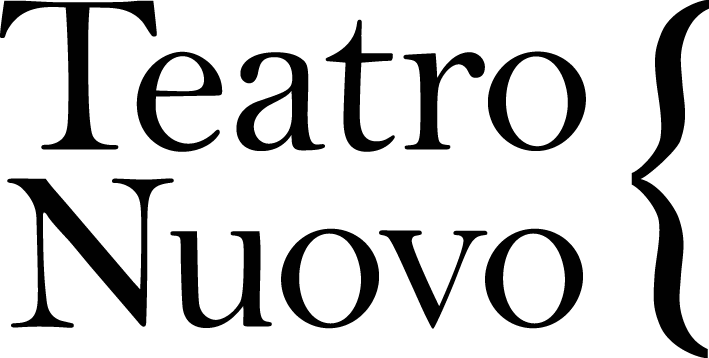























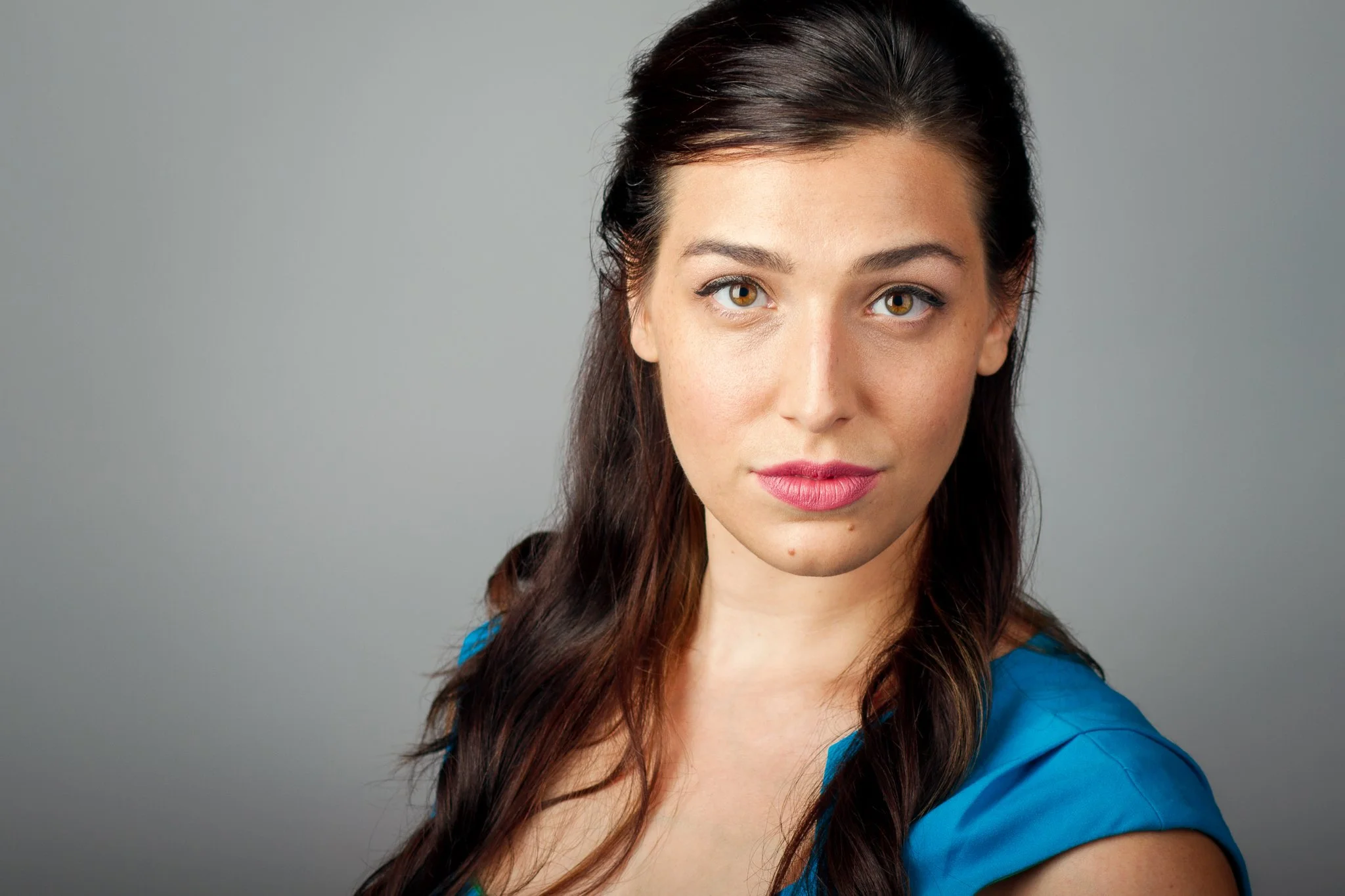










![Image 2 - Henry T. [Harry] Burleigh - Detroit Public Library.jpeg](https://images.squarespace-cdn.com/content/v1/596bb4e703596e837b624445/1591713684327-N7HW488JSZ7EN8T5AJSR/Image+2+-+Henry+T.+%5BHarry%5D+Burleigh+-+Detroit+Public+Library.jpeg)







